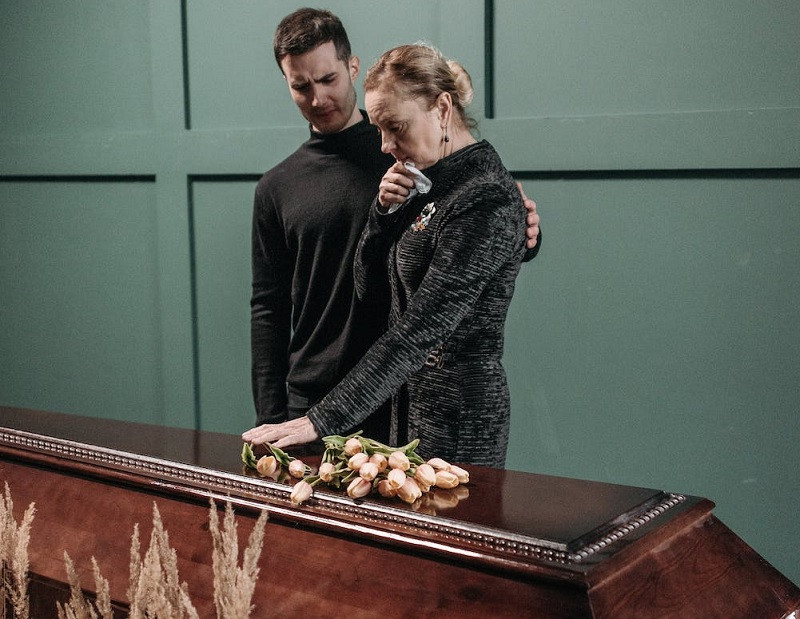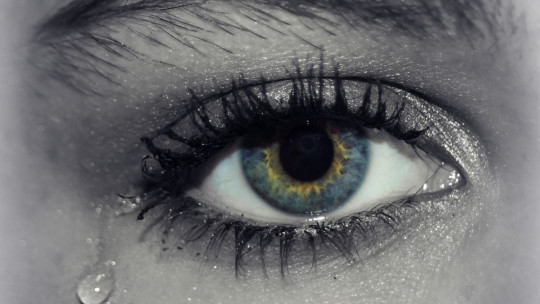Grief is defined as the reaction to the loss of a loved one, although it can also be associated with the loss of an object that is too significant for a person, a stage of life or a particular event in existence (Martínez, 2015).
As Rogina and Quilitch (2006) point out, when reference is made to the loss of a person, an experience that is too complex is generated that generates important repercussions on a physical, emotional, behavioral and social level due to the development of feelings associated with the absence of that person, and also with a sudden uncertainty about the future that even leads to questioning the very meaning of life.
How to go through grief?
The ways of assimilating grief vary significantly depending on each person’s life stories, experiences and personality, aspects that together generate a particular coping system, that is, a unique way of reacting to adverse situations that result in the death of a loved one.

However, in general, there are keys that can help us improve our coping systems and our ways of assimilating grief. Although it is true that grief cannot be completely overcome, because the person’s absence will always be perceived and there will always be memories of his life and the moments he spent with us, It is important that if you are experiencing grief you have a series of supports, approaches and options that allow you to feel better and better.
1. Don’t repress the pain
It is important that you can feel and express your pain, instead of repressing it, which is key to accepting that the loved one is no longer here, that the loss is irreparable, that it is normal to suffer and that the expression of all your emotions is established as a crucial requirement for your progressive strengthening for the acceptance of the facts, to understand the inevitability of death and, above all, to increasingly value your own life and that of the other people who are by your side.
2. Seek the company of people you appreciate
It is important that you understand that your pain and grief has an impact on others. For this reason, you need the company of the people you love, because due to the enormous pain associated with grief, the significance of the emotions it generates, it is established as an experience that must be shared and accompanied.
It is normal for people who have had a loss of this type to value the company of their family and friends more, as they have emotional support that allows them to vent, remember the things and good times that happened with that person who is gone having someone to talk to in the most difficult moments, share emotions and jointly build new coping possibilities.
3. Grief is not an illness
Although grief is associated with manifestations that are similar to those presented in the clinical symptoms of depression, such as a feeling of despondency, deep sadness, disappointment, apathy and detachment from life, the first thing you have to understand is is that grief is not an illness but a natural reaction to a painful event. You are not suffering from a disease, but on the contrary you are developing a series of reactions that are adaptive in the face of the loss of someone very significant to you.
This adaptation process is not only natural but is absolutely necessary so that you can express your pain and move forward. And since grief is not an illness, there is no specific cure, just a series of processes of acceptance, adaptation and resilience that can help you feel better and better.
4. Do not abandon yourself to the feeling of grief
Although it is important that you can express your emotions and suffer pain as a means of adaptation and acceptance, it is also key that in this process you continue to develop your daily self-care activities, among which hygiene and personal care habits stand out, as well as eat, hydrate well and sleep properly.
It is important that you pay attention to your body , since traumatic experiences can result in excessive energy expenditure. That’s why you should take better care of yourself, exercise, participate in recreational activities, and try to keep a clear mind.
This is very important because in grief, various sensations that go beyond suffering, and that are connected, for example, with guilt, anger, fear or shame, occur in an almost uncontrolled and random way. Therefore, it is key that you take care of your health, that you continue doing the activities that you like and that you distract yourself without trying to deny what has happened.
5. Give yourself time to get back to performing well in all your activities
There is no such thing as a specific time in which grief ends or is overcome, as it depends on each person and each situation. In any case, it is important that you do not rush too quickly to return to your activities, as it is normal that your cognitive capacity and skills are reduced due to the emotional impact you have had.
It is important respect the rhythm of the duel , taking into account that there are days when you will feel better, but there are others in which it will seem like you are going backwards. You can gradually incorporate your normal activities, establishing new adaptation mechanisms and always allowing yourself moments of solitude to reflect and remember that person.
In the midst of this entire process, it is important that you always remember the loved one who is gone, in the best way possible. Only you know what is the most meaningful way to honor your relationship with her, to value the life she had and the moments you shared.









